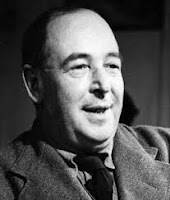 |
| St. Thomas Aquinas |
Ineffable Creator,
Who, from the treasures of Your wisdom,
have established three hierarchies of angels,
have arrayed them in marvelous order
above the fiery heavens,
and have marshaled the regions
of the universe with such artful skill,
You are proclaimed
the true font of light and wisdom,
and the primal origin
raised high beyond all things.
Pour forth a ray of Your brightness
into the darkened places of my mind;
disperse from my soul
the twofold darkness
into which I was born:
sin and ignorance.
You make eloquent the tongues of infants.
refine my speech
and pour forth upon my lips
The goodness of Your blessing.
Grant to me
keenness of mind,
capacity to remember,
skill in learning,
subtlety to interpret,
and eloquence in speech.
May You
guide the beginning of my work,
direct its progress,
and bring it to completion.
You Who are true God and true Man,
who live and reign, world without end.
Amen.
Ante Studium
Creator ineffabilis,
qui de thesauris sapientiae tuae
tres Angelorum hierarchias designasti,
et eas super caelum empyreum
miro ordine collocasti,
atque universi partes elegantissime disposuisti,
tu inquam qui
verus fons
luminis et sapientiae diceris
ac supereminens principium
infundere digneris
super intellectus mei tenebras
tuae radium claritatis,
duplices in quibus natus sum
a me removens tenebras,
peccatum scilicet et ignorantiam.
Tu, qui linguas infantium facis disertas,
linguam meam erudias
atque in labiis meis gratiam
tuae benedictionis infundas.
Da mihi
intelligendi acumen,
retinendi capacitatem,
addiscendi modum et facilitatem,
interpretandi subtilitatem,
loquendi gratiam copiosam.
Ingressum instruas,
progressum dirigas,
egressum compleas.
Tu, qui es verus Deus et homo,
qui vivis et regnas in saecula saeculorum.








